An an estimated 70 per cent of married women in India, between 15 & 49 years, are victims of beating, rape or coerced sex.
Sarita Shah, a Mumbai fashion designer, met the man of her dreams on the internet. Or so she thought. Mohammad Arif was an engineer from Delhi, good-looking and apparently well-to-do.
The two married, and Shah moved to Delhi. But today, all she can remember of her marriage is a year-and-a-half of beatings and extortion, where Arif took lakhs from both her and her family. He forced her to have an abortion, and finally threw her out of the house.
Shah’s case is significant. Around the time her trauma was playing out, the decks were cleared for a long-awaited bill on domestic abuse. The Protection against Domestic Violence Act, passed in September 2005, also touches on all aspects of Shah’s torture and tries to remedy them through law: physical, sexual, emotional and economic abuse.
It’s also relevant to an estimated 70 per cent of married women in India, between the 15 and 49 years, who are victims of beating, rape or coerced sex, according to a 2005 United Nation Population Fund report. Despite its implementation in October, the act seems to have made little difference to an increasing incidence of domestic violence in Mumbai.
In shocking back-to-back cases recently, a 60-year-old woman was battered by her 63-year-old husband, and a 23-year-old dancer was raped and beaten up by an ex-boyfriend who broke into her home.
Activists aren’t excited about the new act. “I’m not expecting any miracles,” says Geeta Mahajan, of the National Federation of Indian Women, which handles about 15 new cases every month, up from about 10 five years ago. “No act has been able to impact our society as quickly and effectively as required. Domestic violence is increasing every day.”
It took Kiranjeet Ahluwalia, the subject of the recent Aishwarya Rai-starrer Provoked, years to get justice in the UK, where support systems for abuse are much more in place than India. It clearly won’t be any quicker here. There are many reasons why.
Victims often deny domestic abuse, either to avoid public humiliation, preserve family honour or for fear of being driven out. Most cases go unreported. “When a woman does file a complaint, the police are reluctant to meddle in what they call family matters,” says Bishakha Datta of the group Point of View.
Other support systems are not in place either, adds Haseena Khan of the rights group Awaaz-e-Niswaan. “If the woman is thrown out of her home, often her parents refuse to take her in because they believe she should work her marriage out,” says Khan, pointing to a dismal lack of shelters in Mumbai. “Sometimes an abused woman continues to live with her spouse because she has nowhere to go, especially with kids.”
The new act, while formalising and bringing solutions under one legislation, has its drawbacks. “The act has made it difficult to work,” says lawyer Flavia Agnes of Majlis.
It designates a protection officer to register a victim’s complaint and help her with legal aid and finding shelter in a safehouse. “But this envisages an entire office, with support staff,” says Agnes. “In a resources-crunched government, where will they come from?”
Moreover, the act does not specify the state’s responsibility in providing and running shelters. The understanding is that the protection officer will simply locate and assign victims to safehouses run by NGOs.
All this is in contrast to support for victims abroad. In the US, an estimated three million women are physically abused by their husband or boyfriend every year, while in the UK, Home Office figures say it claims the lives of two women every week. A few years ago, the UK government formed a Domestic Violence National Action Plan to tackle this.
And the US has a host of agencies that provide all kinds of help. India’s first step is the act, and its iffy implications. But it’s a step in the right direction.
![submenu-img]() Meet IIT-JEE topper with AIR 1, son of government school teachers, he went on to pursue...
Meet IIT-JEE topper with AIR 1, son of government school teachers, he went on to pursue...![submenu-img]() Salman Khan house firing case: One more Lawrence Bishnoi gang member arrested by Mumbai Police
Salman Khan house firing case: One more Lawrence Bishnoi gang member arrested by Mumbai Police ![submenu-img]() Mukesh Ambani to host Anant-Radhika's second pre-wedding function: Trip to start from Italy with 800 guests and end in..
Mukesh Ambani to host Anant-Radhika's second pre-wedding function: Trip to start from Italy with 800 guests and end in..![submenu-img]() Driver caught on camera running over female toll plaza staff on Delhi-Meerut expressway, watch video
Driver caught on camera running over female toll plaza staff on Delhi-Meerut expressway, watch video![submenu-img]() 'If you come and do something here...': EAM S Jaishankar on India's 'message' against terrorism
'If you come and do something here...': EAM S Jaishankar on India's 'message' against terrorism![submenu-img]() Meet IIT-JEE topper with AIR 1, son of government school teachers, he went on to pursue...
Meet IIT-JEE topper with AIR 1, son of government school teachers, he went on to pursue...![submenu-img]() TN 11th Result 2024: TNDGE Tamil Nadu HSE (+1) result declared, direct link here
TN 11th Result 2024: TNDGE Tamil Nadu HSE (+1) result declared, direct link here![submenu-img]() Meet doctor who cracked UPSC exam with AIR 9 but didn’t became IAS due to…
Meet doctor who cracked UPSC exam with AIR 9 but didn’t became IAS due to…![submenu-img]() TN 11th Result 2024 to be declared today; know how to check
TN 11th Result 2024 to be declared today; know how to check![submenu-img]() Meet man who worked as coolie, studied from railway's WiFi, then cracked UPSC exam to become IAS, secured AIR...
Meet man who worked as coolie, studied from railway's WiFi, then cracked UPSC exam to become IAS, secured AIR...![submenu-img]() DNA Verified: Is CAA an anti-Muslim law? Centre terms news report as 'misleading'
DNA Verified: Is CAA an anti-Muslim law? Centre terms news report as 'misleading'![submenu-img]() DNA Verified: Lok Sabha Elections 2024 to be held on April 19? Know truth behind viral message
DNA Verified: Lok Sabha Elections 2024 to be held on April 19? Know truth behind viral message![submenu-img]() DNA Verified: Modi govt giving students free laptops under 'One Student One Laptop' scheme? Know truth here
DNA Verified: Modi govt giving students free laptops under 'One Student One Laptop' scheme? Know truth here![submenu-img]() DNA Verified: Shah Rukh Khan denies reports of his role in release of India's naval officers from Qatar
DNA Verified: Shah Rukh Khan denies reports of his role in release of India's naval officers from Qatar![submenu-img]() DNA Verified: Is govt providing Rs 1.6 lakh benefit to girls under PM Ladli Laxmi Yojana? Know truth
DNA Verified: Is govt providing Rs 1.6 lakh benefit to girls under PM Ladli Laxmi Yojana? Know truth![submenu-img]() Remember Harsh Lunia? Just Mohabbat child star, here's how former actor looks now, his wife is Bollywood's popular...
Remember Harsh Lunia? Just Mohabbat child star, here's how former actor looks now, his wife is Bollywood's popular...![submenu-img]() Mother's Day 2024: Bollywood supermoms who balance motherhood, acting, and run multi-crore businesses
Mother's Day 2024: Bollywood supermoms who balance motherhood, acting, and run multi-crore businesses![submenu-img]() Rocky Aur Rani's Golu aka Anjali Anand shocks fans with drastic weight loss without gym, says fitness secret is...
Rocky Aur Rani's Golu aka Anjali Anand shocks fans with drastic weight loss without gym, says fitness secret is...![submenu-img]() In pics: Ram Charan gets mobbed by fans during his visit to Pithapuram for ‘indirect campaign’ for uncle Pawan Kalyan
In pics: Ram Charan gets mobbed by fans during his visit to Pithapuram for ‘indirect campaign’ for uncle Pawan Kalyan![submenu-img]() Streaming This Week: Yodha, Aavesham, Murder In Mahim, Undekhi season 3, latest OTT releases to binge-watch
Streaming This Week: Yodha, Aavesham, Murder In Mahim, Undekhi season 3, latest OTT releases to binge-watch![submenu-img]() Haryana Political Crisis: Will 3 independent MLAs support withdrawal impact the present Nayab Saini led-BJP government?
Haryana Political Crisis: Will 3 independent MLAs support withdrawal impact the present Nayab Saini led-BJP government?![submenu-img]() DNA Explainer: Why Harvey Weinstein's rape conviction was overturned, will beleaguered Hollywood mogul get out of jail?
DNA Explainer: Why Harvey Weinstein's rape conviction was overturned, will beleaguered Hollywood mogul get out of jail?![submenu-img]() What is inheritance tax?
What is inheritance tax?![submenu-img]() DNA Explainer: What is cloud seeding which is blamed for wreaking havoc in Dubai?
DNA Explainer: What is cloud seeding which is blamed for wreaking havoc in Dubai?![submenu-img]() DNA Explainer: What is Israel's Arrow-3 defence system used to intercept Iran's missile attack?
DNA Explainer: What is Israel's Arrow-3 defence system used to intercept Iran's missile attack?![submenu-img]() Salman Khan house firing case: One more Lawrence Bishnoi gang member arrested by Mumbai Police
Salman Khan house firing case: One more Lawrence Bishnoi gang member arrested by Mumbai Police ![submenu-img]() Meet actress, who got rejected for her looks, had no hit for 15 years; later beat Alia, Deepika, Katrina at box office
Meet actress, who got rejected for her looks, had no hit for 15 years; later beat Alia, Deepika, Katrina at box office![submenu-img]() Abdu Rozik breaks silence on his wedding announcement being called ‘publicity stunt’: ‘The whole world is…’
Abdu Rozik breaks silence on his wedding announcement being called ‘publicity stunt’: ‘The whole world is…’![submenu-img]() Meet actress who made debut with Salman Khan, had super flop career, then got TB, now lives in chawl, runs..
Meet actress who made debut with Salman Khan, had super flop career, then got TB, now lives in chawl, runs..![submenu-img]() Meet actress who worked with Naseeruddin Shah, sister of popular models, is now getting trolled on social media for..
Meet actress who worked with Naseeruddin Shah, sister of popular models, is now getting trolled on social media for..![submenu-img]() Driver caught on camera running over female toll plaza staff on Delhi-Meerut expressway, watch video
Driver caught on camera running over female toll plaza staff on Delhi-Meerut expressway, watch video![submenu-img]() Delhi man takes 200 flights in 110 days, steals lakhs worth of jewelry from passengers
Delhi man takes 200 flights in 110 days, steals lakhs worth of jewelry from passengers![submenu-img]() Viral video: Man makes paratha with 'diesel', internet reacts
Viral video: Man makes paratha with 'diesel', internet reacts![submenu-img]() Viral video of 'black jalebi' leaves internet in shock; netizens say 'hey bhagwan...'
Viral video of 'black jalebi' leaves internet in shock; netizens say 'hey bhagwan...'![submenu-img]() Real-life Bambi and Thumper? Adorable deer and rabbit video melts hearts online
Real-life Bambi and Thumper? Adorable deer and rabbit video melts hearts online

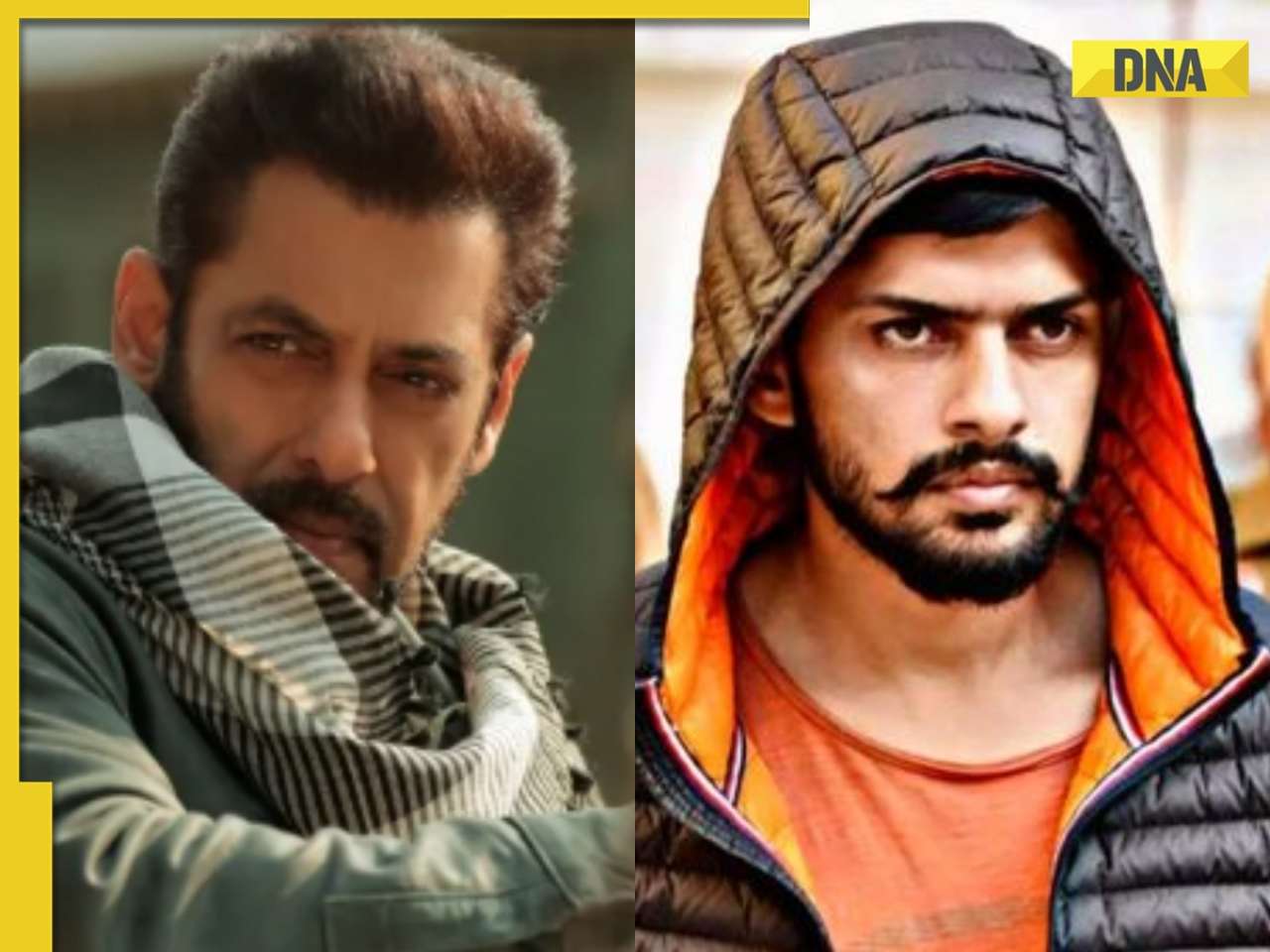


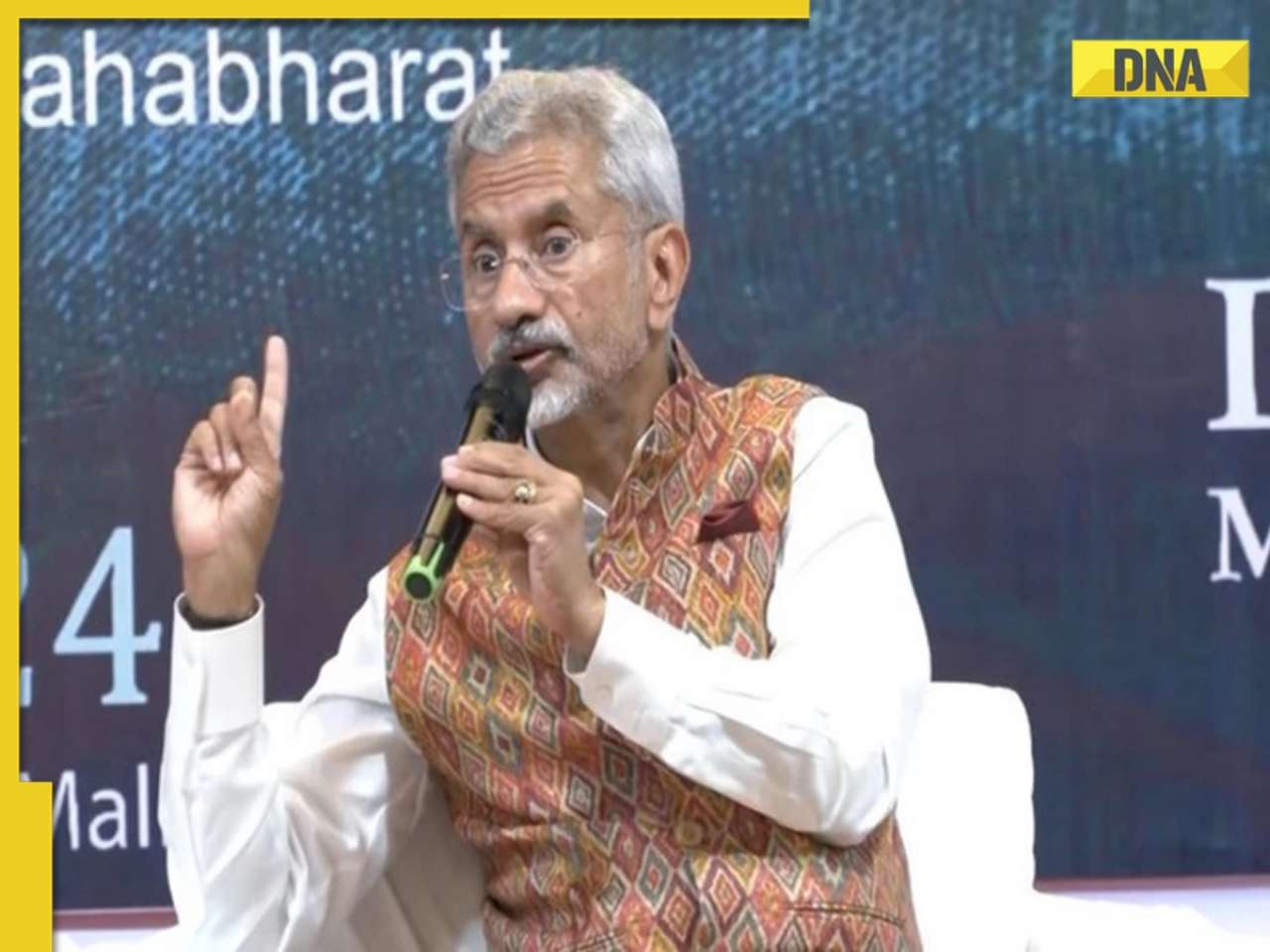




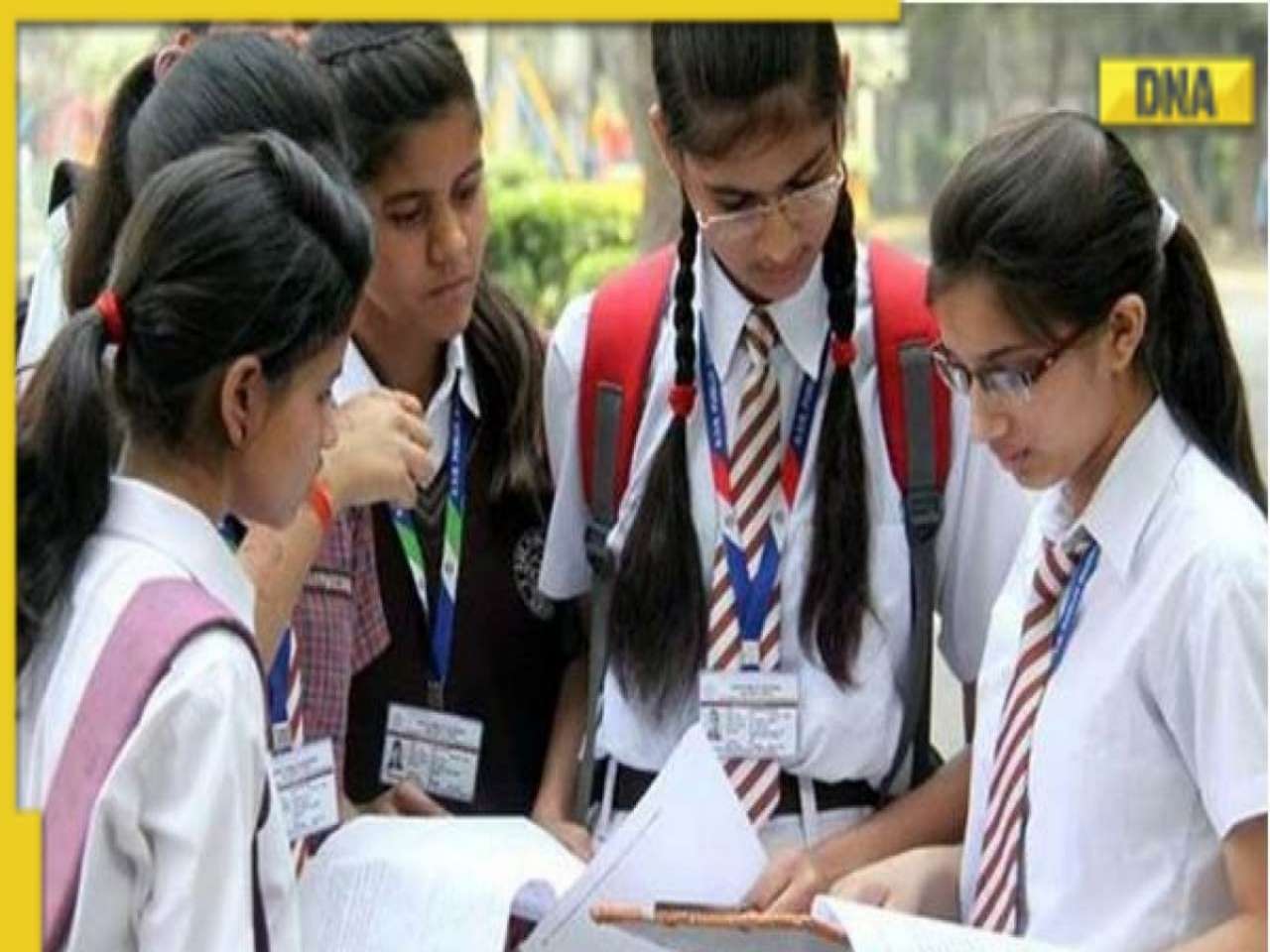

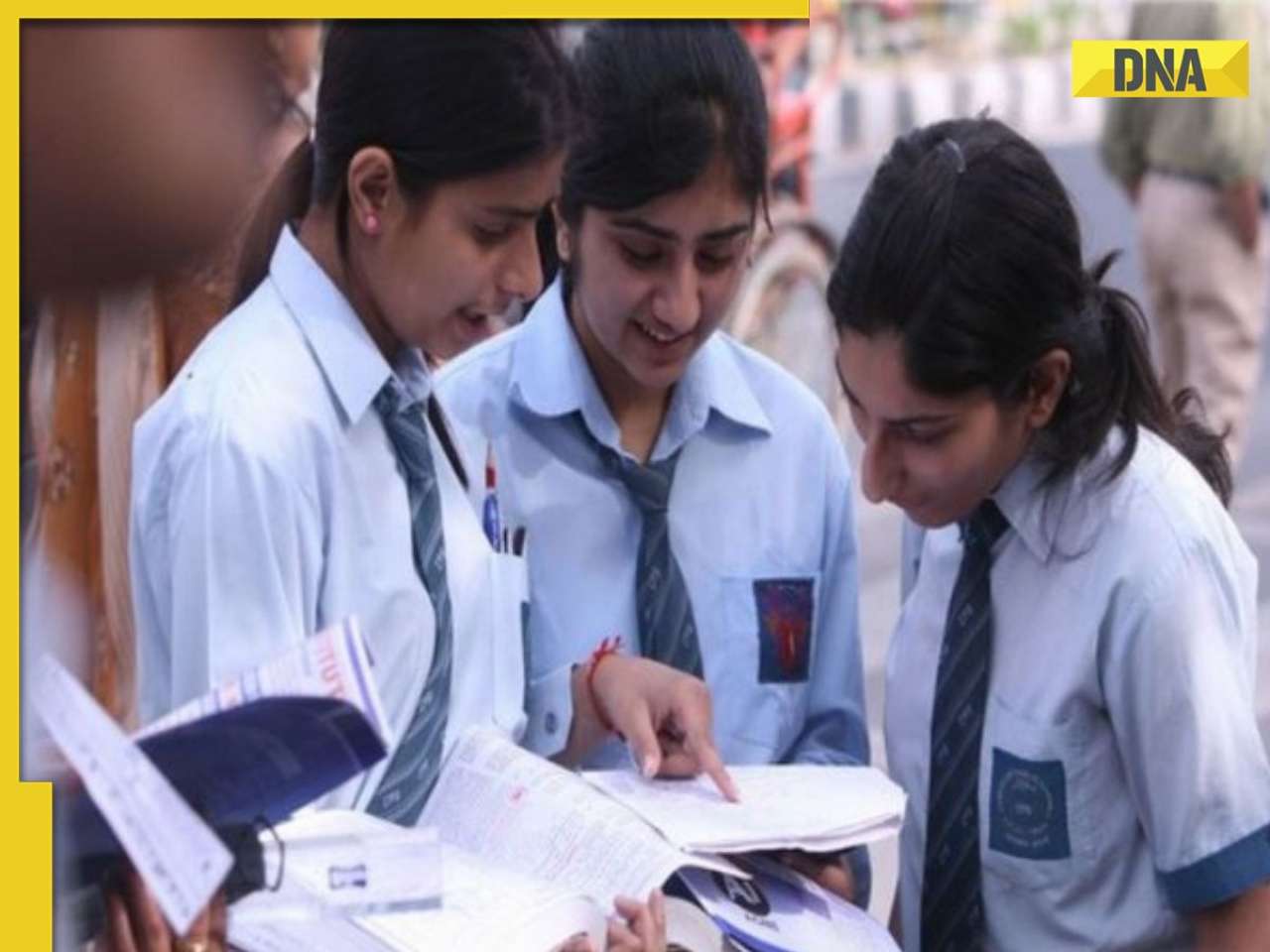
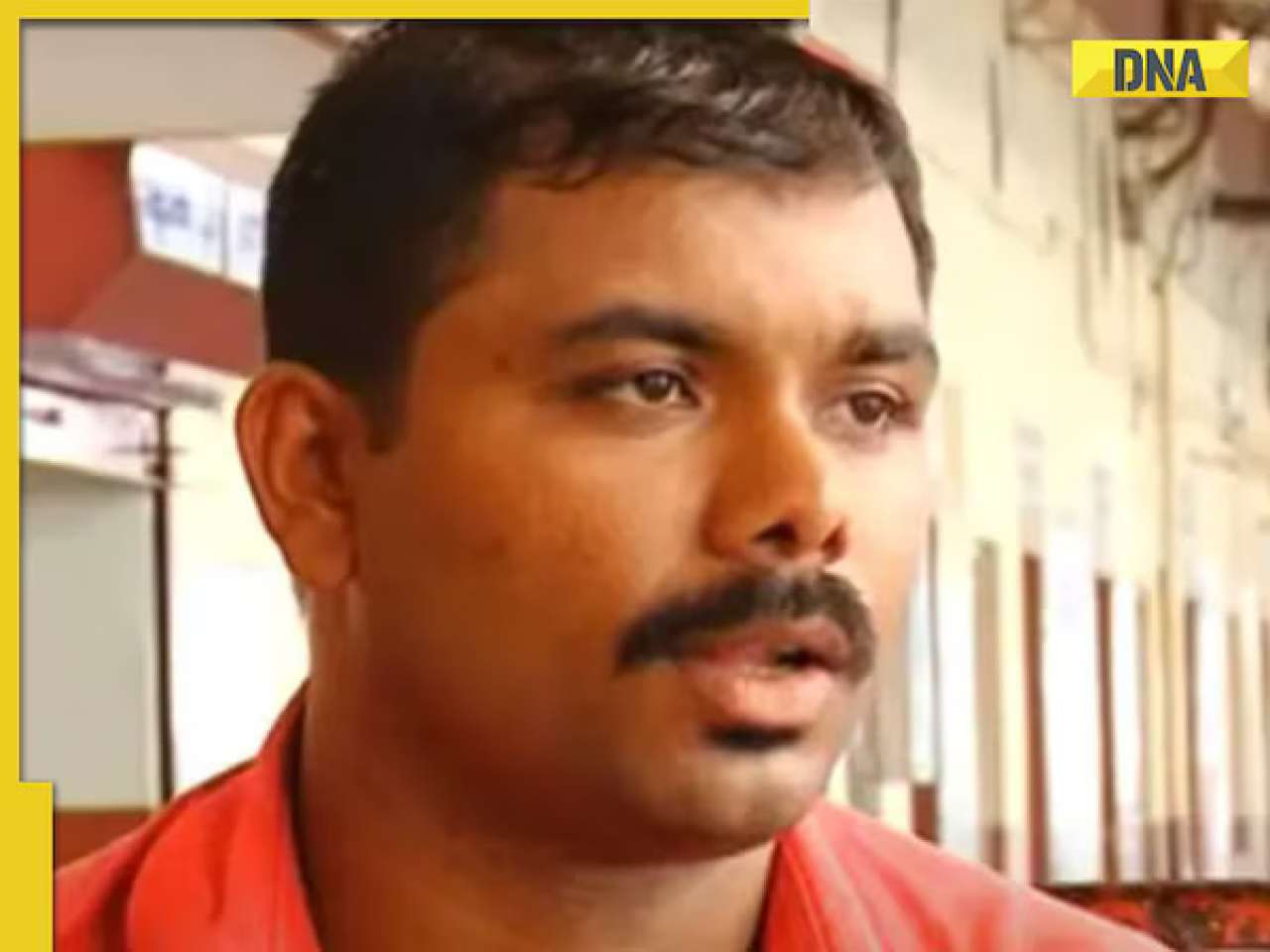





















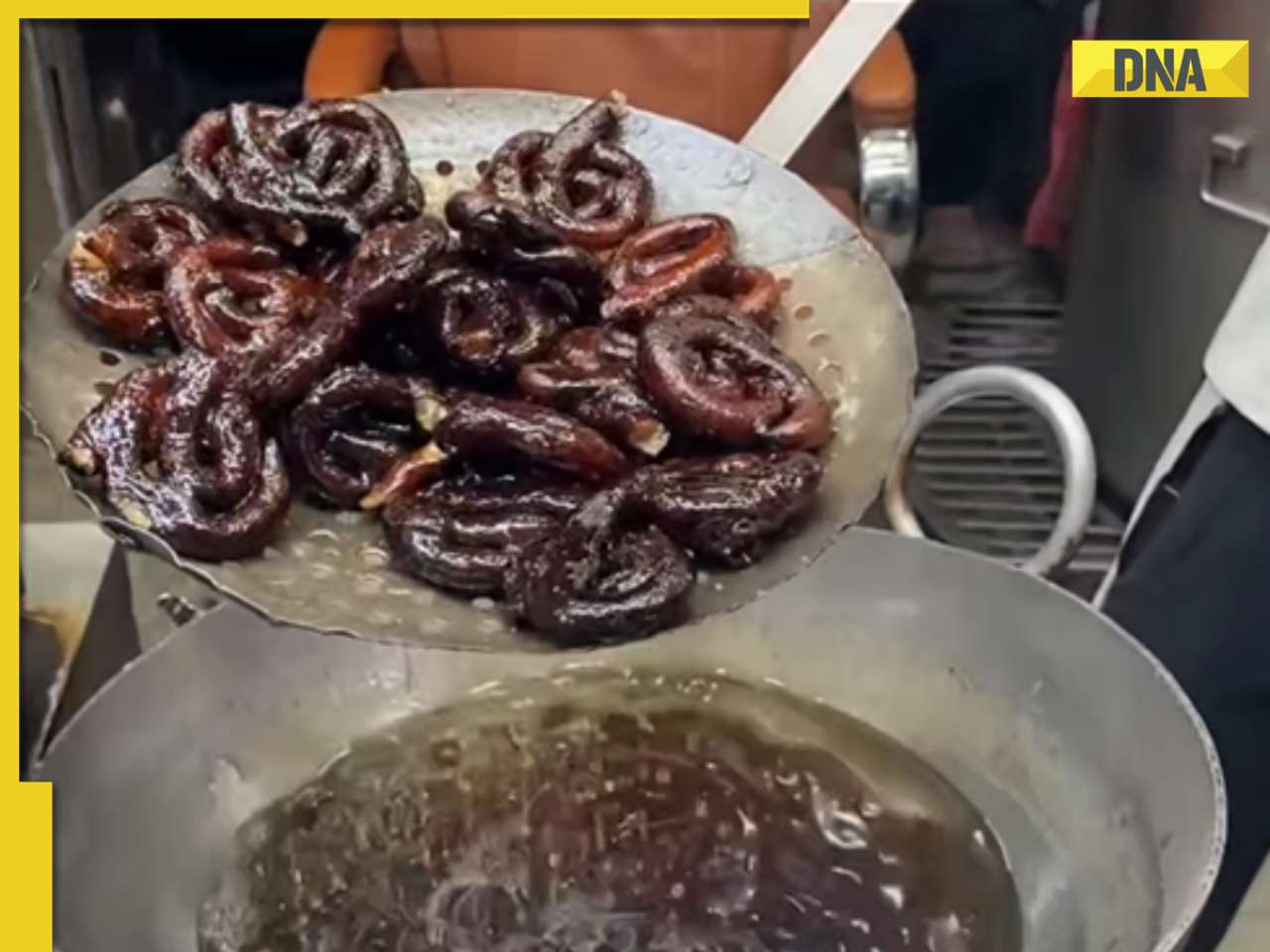



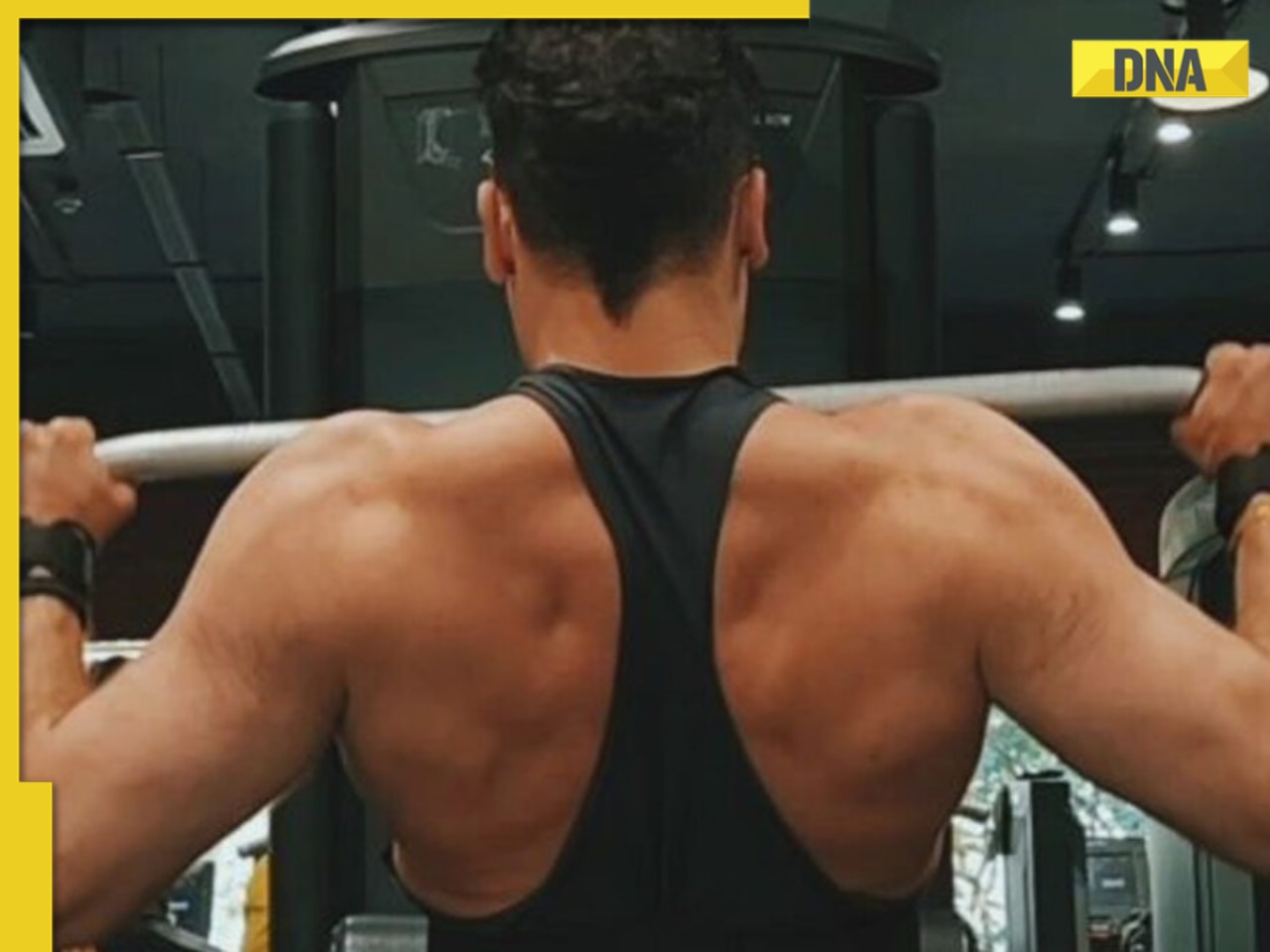
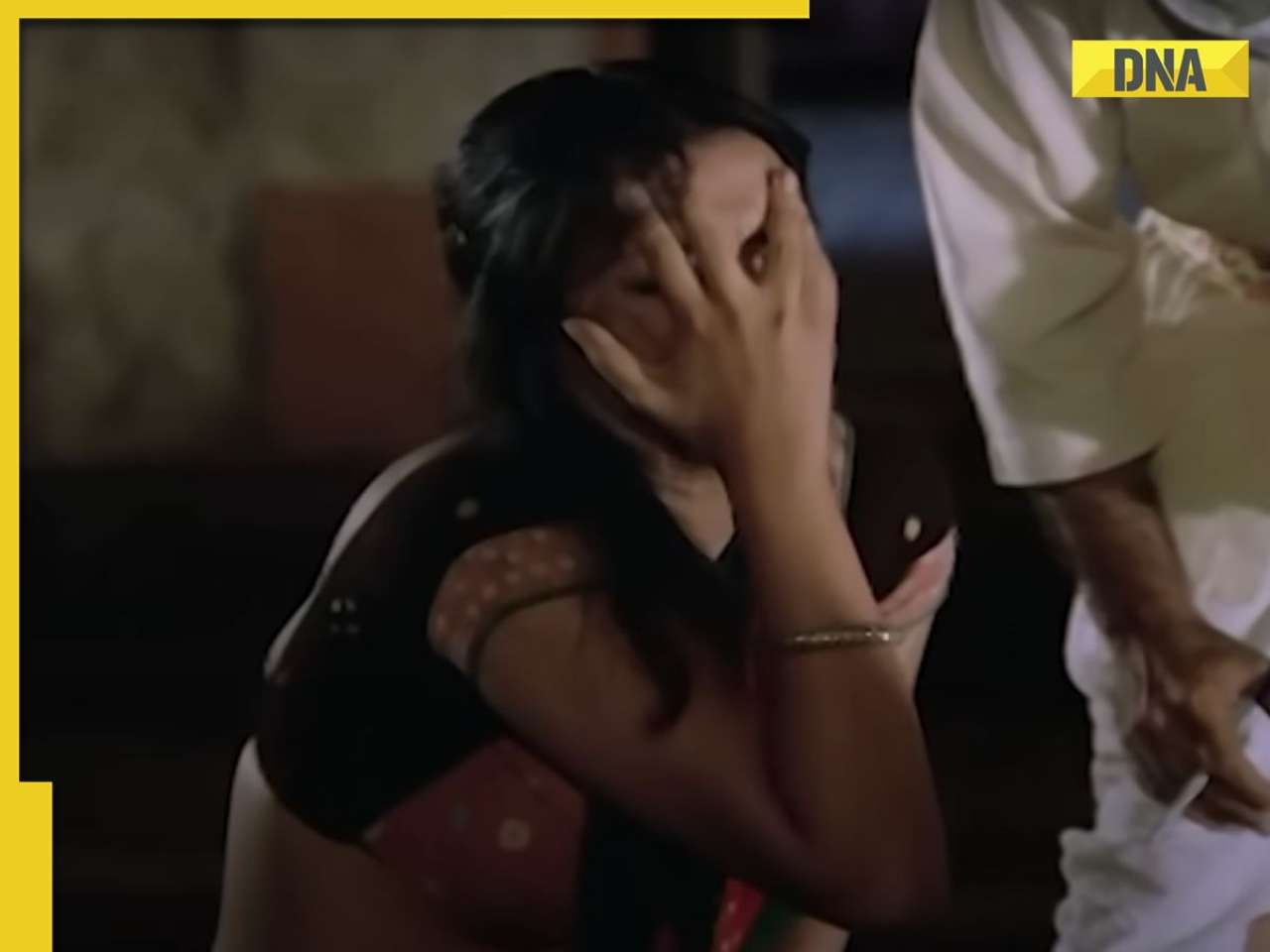







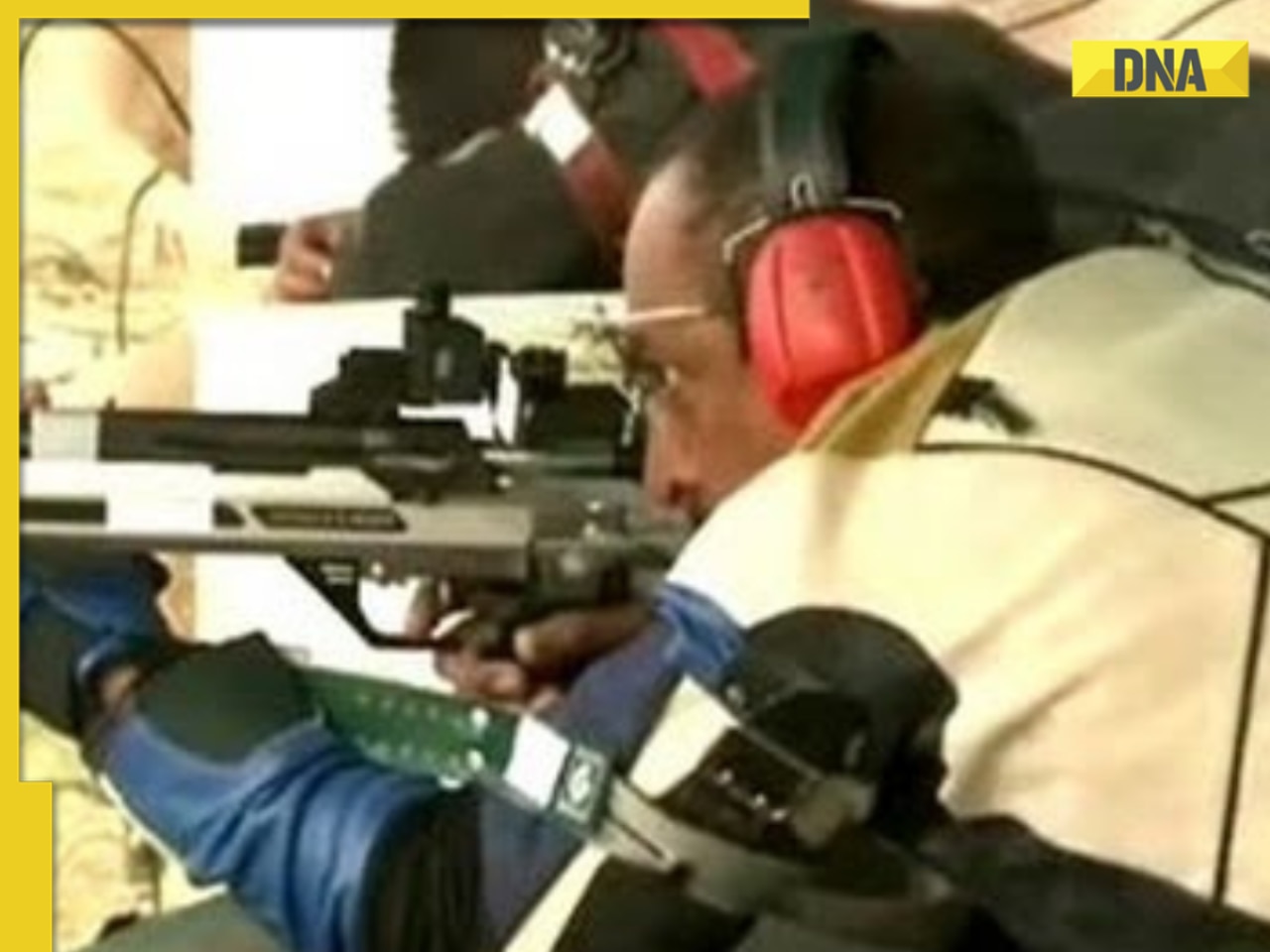






)
)
)
)
)
)